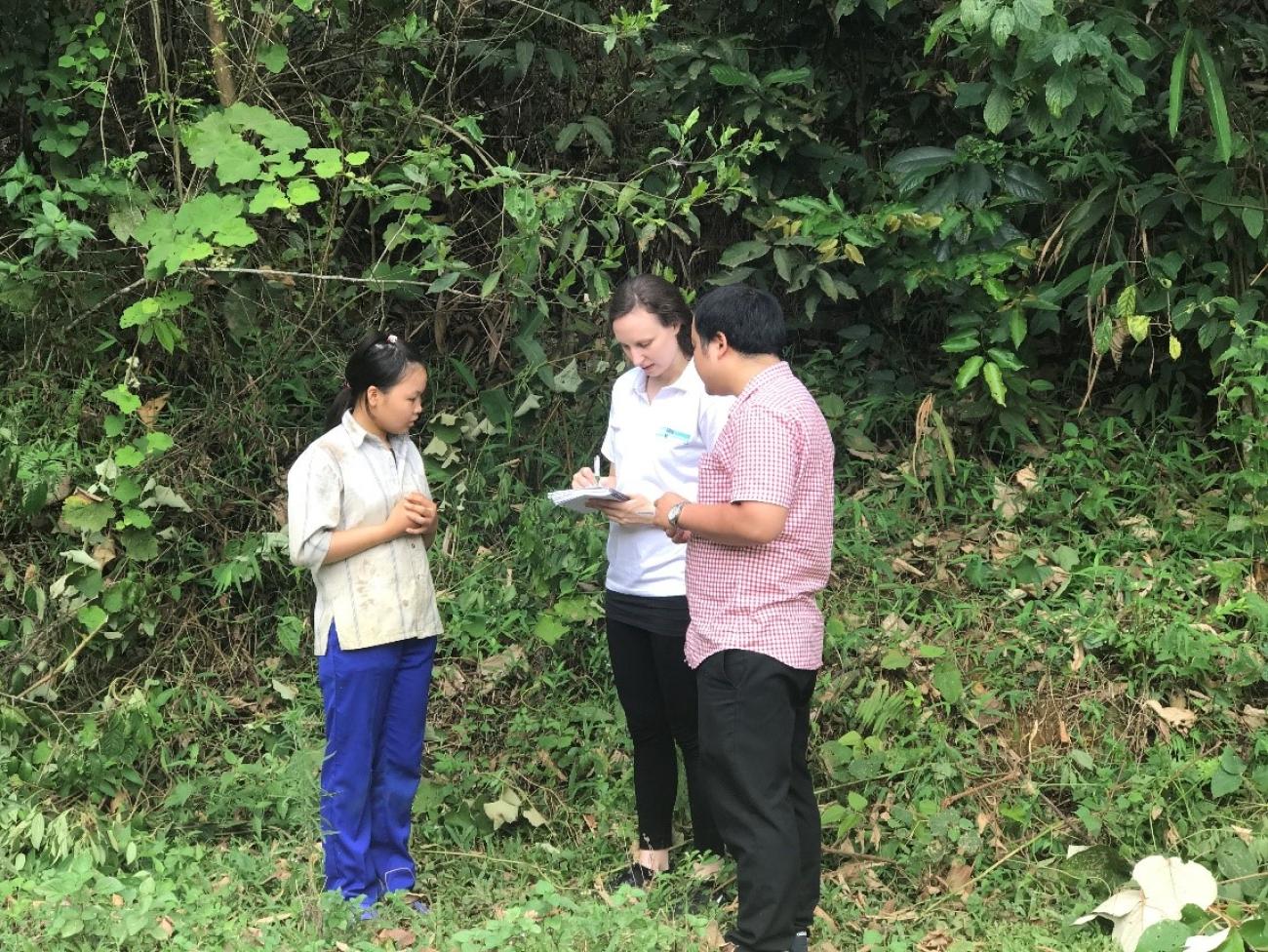Protecting our environment also means protecting humans, UN Volunteer Theresa Schwarz thinks. Here, she interviews a student from a Vietnamese ethnic minority who won a photo contest showing this link between humans and nature. The activity is supported by the climate UN-REDD Programme.
Theresa Schwarz is currently assigned to the climate UN-REDD Programme through the United Nations Development Programme (UNDP) in Viet Nam: As UNV Communications Specialist, she can use her international experience as communicator and project manager to show the impact of sustainable development activities.
The United Nations Sustainable Development Goals remind us how much humans and nature are connected. A dried-out river might affect people who now struggle to find drinking water. A forest fire can destroy homes and lives. Due to climate change, disasters like floods and storms seem to increase. Therefore, humans might need to change the way they are currently treating the planet.
“If we do not protect our environment, our lives are also in danger,” says Theresa Schwarz, United Nations Specialist Volunteer in Viet Nam. “How could we survive on a destroyed Earth?” She does not feel hopeless, though, because everybody has the power to create change. Creating change does not need to happen with large jumps – small steps each day can already work wonders.
“How could we survive on a destroyed Earth?”
In her volunteering activities like organizing a photo campaign for Earth Day in Viet Nam, Theresa tries to show exactly this: Everyone can be a change maker, not limited to environmental protection. “It would be too simple to just think about saving coral reefs without considering humans as well. Many topics are linked, so if we look at nature protection, we also need to discuss how social issues like reduction of hunger and poverty can be tackled.”
As volunteer consultant, she rather talks about the whole picture: sustainability. Sustainability includes environment, society and economy. In interactive training sessions which Theresa facilitated in Europe, the Middle East and Southeast Asia, she explored ways how to move from simply raising awareness about sustainability to encouraging people to change behavior.
The experience she collected during her assignment as Communications Specialist for the forestry and climate action UN-REDD Programme helped her to improve her volunteer activities. She encouraged for example partnership development, and tested a method for mutual understanding when she facilitated a communications workshop for local and international organizations like the World Wide Fund for Nature (WWF) in the Philippines: the method of Nonviolent Communication which can help dealing with each other in a peaceful and compassionate way.
“No compassion means that the risk of conflict and war increases, which can also lead to destruction of nature,” says Theresa who just returned from another workshop she facilitated, this time about marketing communications management for humanitarian organizations like Caritas Czech Republic in Cambodia. “So compassion is important for environmental and human protection.”




